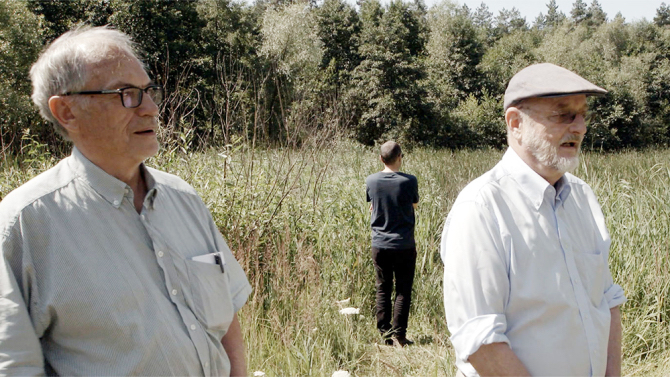 When the British/French renowned human rights lawyer Phillipe Sands was doing research for a book he was writing about crimes against humanity he came across two elderly German/Austrian men. One was Niklas Frank who’s father was Hans Frank, Hitler’s personal lawyer and, from October 1939, governor-general of Nazi-occupied Poland, which came to include Galicia. The other man was Horst von Wächter, who’s father was Otto von Wächter, one of Hans Frank’s deputies, and governor of Krakow and then Galicia. Between 1939 and 1945 the two men were responsible for actions that led to the deaths of millions of Jews and Poles.
When the British/French renowned human rights lawyer Phillipe Sands was doing research for a book he was writing about crimes against humanity he came across two elderly German/Austrian men. One was Niklas Frank who’s father was Hans Frank, Hitler’s personal lawyer and, from October 1939, governor-general of Nazi-occupied Poland, which came to include Galicia. The other man was Horst von Wächter, who’s father was Otto von Wächter, one of Hans Frank’s deputies, and governor of Krakow and then Galicia. Between 1939 and 1945 the two men were responsible for actions that led to the deaths of millions of Jews and Poles.Sands own family had all perished in the Holocaust with the single exception of his own grandfather who, right up to his subsequent death, refused to talk about events that led up to the annihilation of all his relatives. It had been a long outstanding ambition of Sands to get details of how his past had been so violently re-shaped. So after persuading both von Wächter and Frank to open up to him about what they knew of their father’s crucial roles in the Nazi hierarchy, he took them on a journey to Ukraine where his own family had perished.
Frank has been on record before about his own feelings about the father he so vehemently hated in Chanoch Ze’evi’s 2011 documentary ‘Hitler’s Children’. Frank has channelled that into positive action by writing two no-holds barred books about his father’s exploits as ‘the Butcher of Poland’ as he was known, and has subsequently spent a great deal of time talking to schoolchildren about his father’s pivotal role in the Holocaust. With Sands he is equally blunt about his childhood with a cold distant father and his total distaste for the genocide that he acknowledges he had been responsible for.
Horst on the other hand is clinging bitterly to the past living in his old unheated dilapidated Schloss and is still in total denial that his father was a mass murderer. He grasps at straws like the fact that von Wächter Snr escaped after the war and given safe refuge by an Austrian Cardinal within the Vatican where he lived until he died thus escaping a Nuremburg War Crimes Trial that had found Frank and other senior Nazis guilty of mass-murder. During the first part of the documentary as both Sands and Frank argue with him gently, we get the impression that the elderly Horst is just mistaken and confused. However as he digs his heels in and adamantly refuses to accept any evidence at all that his father as the Region’s Governor was personally responsible for all the killings in the Camps that he help set up, we realize that this is much more than stubborn denial, and goes back to the fact that he probably is much more of a Nazi himself than he will ever admit too.
 The final part of the documentary is the most shocking when Sands, who has been calm and dispassionate throughout, takes the two men to the very synagogue and the field outside where his entire family, bar one, and several other thousand Jews were killed one afternoon in cold blood. As they stand together and Sands reveals exactly why they have come there, even then neither he nor a very subdued Frank can persuade Horst to finally accept his father’s culpability.
The final part of the documentary is the most shocking when Sands, who has been calm and dispassionate throughout, takes the two men to the very synagogue and the field outside where his entire family, bar one, and several other thousand Jews were killed one afternoon in cold blood. As they stand together and Sands reveals exactly why they have come there, even then neither he nor a very subdued Frank can persuade Horst to finally accept his father’s culpability.David Evans’s documentary written and narrated by Sands is more powerful for the calm and reasoned viewpoint they took even maintaining a dignified patience with Horst which he certainly didn’t deserve, especially when he would ramble on about having an empathy for Jewish people. It’s a painful and grim piece to watch but so completely necessary, and full credit to Sands for getting all on record before all the people linked to that gruesome part of history have gone.


